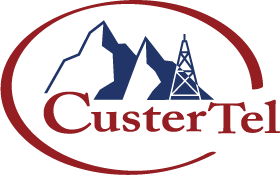Have you ever been told by someone that they tried your landline, but it didn’t ring on your end, even when you are there or have an answering machine on?
Have you ever tried to call someone at their landline but heard nothing but “dead air”, prolonged ringing, a “call cannot be completed as dialed” recording (even when you know you called the right number), or other oddities that are not consistent with a normal call experience?
If either of these describe an experience you’ve had, you’ve experienced an issue caused by least cost routing. The FCC is addressing this issue, working to hold companies accountable. Let us explain a little more.
What’s the cause of this issue?
Here’s a typical series of events that explain the issue that begins with a simple long-distance phone call.

1
A person places a long-distance phone call to a rural area using their local phone company or wireless provider to a rural destination.
2
In order for the subscriber’s call to be completed, the subscriber’s carrier must get the call to the exchange serving that rural resident (the local phone company), and then pay a charge to that local carrier to access its exchange.
3
The phone company or wireless provider of the caller pays a higher-than-average rate to complete its subscriber’s call due to the higher cost associated with calling rural destinations.
4
To minimize the charges, the phone company or wireless provider contracts with a third-party service provider to connect the call.
5
The third-party service provider tries to connect the calls to the rural destination at the lowest cost possible.
6
Because performance levels are not being met, calls are of poor quality or worse, never completed at all.
This is not okay, at all.
Rural communities deserve better. We’re committed to being part of the solution.
Rural call failures aren’t just annoying – they’re a threat to public safety. What happens if hospital or first-responder calls can’t be completed? Least-cost routing carriers must be held accountable. Through education, effective rules and enforcement, we can all do our part to make sure rural communities get the reliable telecommunications access they deserve.
What’s the FCC doing about it?
Known as “rural call completion,” the Federal Communications Commission (FCC) is taking a multi-pronged approach to addressing the issue. Additionally, NTCA–The Rural Broadband Association is advocating for rules and enforcement to end this practice, as well as uniting local carriers in an attempt to end rural call failures.
How do I report problems?
- Whenever possible, you should encourage the person trying to call you to report details of the problem to the caller’s long distance or wireless telephone service provider. The number to report such problems should appear directly on the person’s monthly bill.
- That provider should be be able to locate the source of the problem and fix it.
- You should also provide the same information to your own local phone company so it may work with the caller’s provider to isolate the problem.
If you are having trouble making long distance or wireless calls to a rural area
- Report details of the problem to your long distance or wireless telephone service provider. The number to report such problems should appear directly on your monthly bill. That provider should be be able to locate the source of the problem and fix it.
You should also file a complaint with the FCC.
- For the FCC to take action on your complaint, you must provide the caller’s number, the called number, and the date the attempted calls or problem calls were made.
- If possible, you should also identify the long distance or wireless telephone service provider that serves the caller (i.e., the provider for the person calling the rural area) and provide the time of the calls.
- To file a complaint, complete this online Phone Complaint form. In the box labeled “Phone Issues” select “Rural Call Completion” from the pull down menu.
You can also contact the FCC by phone, fax, mail or email.
What information do I need to report problems?
You’ll need:
- The date and time the call(s) were made or attempted
- The calling and called telephone numbers; and
- If possible, the name of the long distance or wireless telephone service provider that serves the calling customer.
RESOURCES


